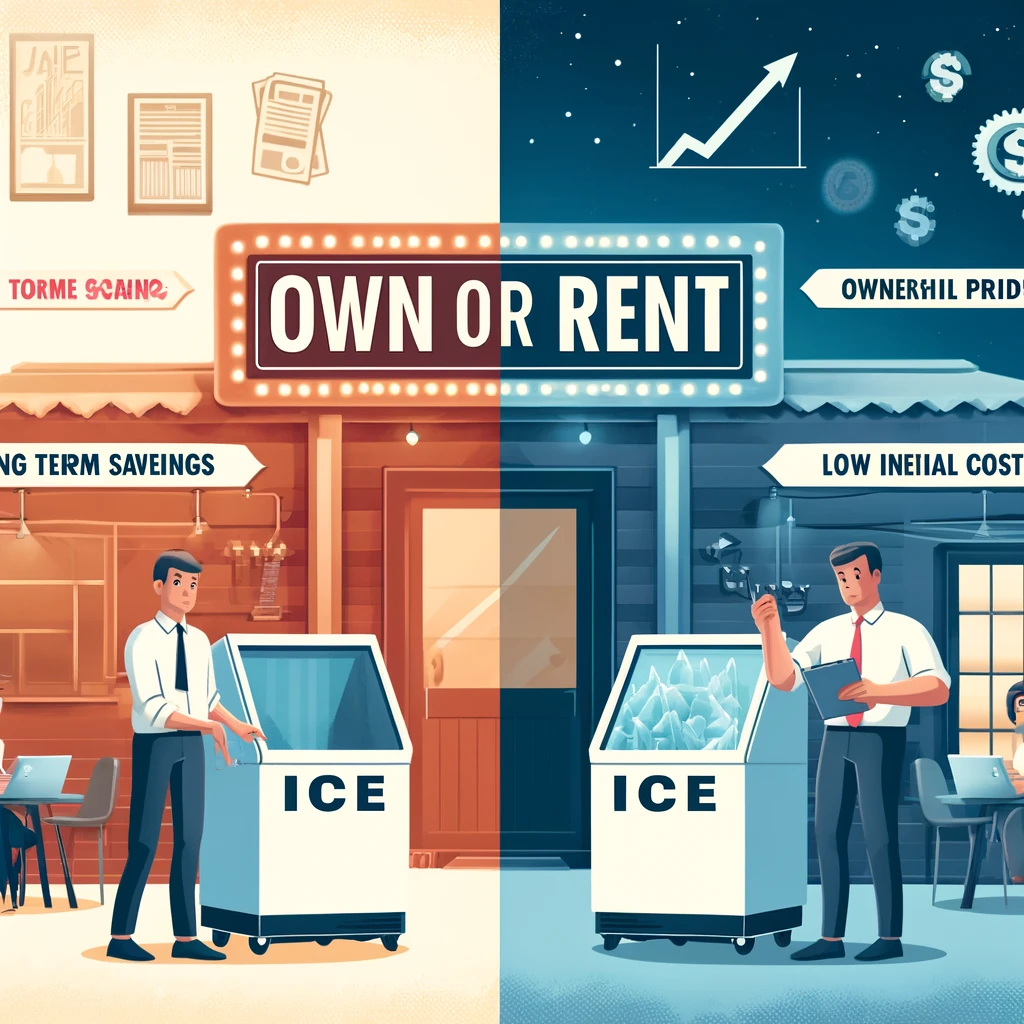Own or Rent? Evaluating the Costs and Benefits of Ice Machine Ownership for Restaurants
Weighing the pros and cons to make the best financial and operational decision for your business.
Introduction
Ice is a critical component of restaurant operations, from beverage service to food preservation. The decision to buy or rent an ice machine comes with financial and operational implications. This guide will help you assess both options and determine what best suits your restaurant’s needs.
The Case for Owning an Ice Machine
Advantages
- Long-Term Savings: Although the upfront cost is high, owning an ice machine eliminates rental fees, making it more economical in the long run.
- Control and Consistency: Ownership ensures direct control over maintenance, repairs, and performance, reducing dependence on third-party vendors.
- Customization: Restaurants can select the best ice machine model tailored to their specific needs, including ice type and output capacity.
Considerations
- Upfront Investment: The initial purchase price can be a financial burden, particularly for smaller establishments.
- Maintenance Responsibilities: Owners must cover all repair and servicing costs, adding to long-term expenses.
- Energy Consumption: Ice machines can contribute to higher electricity bills, increasing operational costs.
The Case for Renting an Ice Machine
Advantages
- Lower Initial Costs: Rental agreements often require minimal upfront investment, preserving cash flow.
- Maintenance Included: Most rental contracts cover repairs and maintenance, reducing unexpected expenses.
- Flexibility: Renting allows restaurants to upgrade to newer models or adjust capacity as business needs evolve.
Considerations
- Ongoing Costs: Monthly rental fees can accumulate over time, potentially exceeding the cost of ownership.
- Dependence on Vendor: Restaurants must rely on the rental company for service and maintenance, which could lead to operational disruptions if service quality is lacking.
Making Your Decision
To determine whether owning or renting an ice machine is the right choice, consider the following factors:
- Financial Health: If capital is limited, renting can help conserve resources for other business needs.
- Business Stability: Established restaurants with predictable cash flow may benefit more from ownership.
- Operational Preferences: If managing maintenance is a concern, renting may offer peace of mind and convenience.
Conclusion
Both buying and renting an ice machine have distinct advantages and drawbacks. By evaluating your restaurant’s financial health, stability, and operational preferences, you can make an informed decision that supports your long-term success. If you need personalized guidance, consulting with financial and industry experts can provide additional insights.

